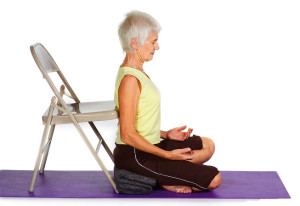Arthritis is a chronic disease that most commonly affects the joints. Depending on the type of arthritis symptoms may include pain, stiffness, swelling, redness, and decreased range of motion. It affects an estimated 52.5 million adults in the United States. It is associated with aging as arthritis occurs in only 7% of adults ages 18–44, while 30% adults ages 45–64 are affected, and 50% of adults ages 65 or older. Due to complications associated with arthritis, the lifespan for people with RA may be shortened by 10 years.
The pain, stiffness, and lack of mobility associate with arthritis produce fatigue and markedly reduce the quality of life of the sufferers. It can have very negative psychological effects diminishing the individual’s self-image and may lead to depression, isolation, and withdrawal from friends and social activities. It even affects the individual’s physical appearance. As the quality of life deteriorates the individual can feel a loss of control and become anxious about the future. Stress can build and influence the individual’s attitude toward life and can lead to frustration, anger, and hopelessness.
Arthritis reduces the individual’s ability to function at work and may require modifications of work activities. This can lead to financial difficulties. The normal chores at home may take much longer to accomplish and the individual may need the help of a relative or caregiver. Hence, it can produce stress on the entire family system.
It is obvious that there is a need for a safe and effective treatment to help the suffer cope with the disease and its consequences. Increasing exercise has been shown to increase flexibility and mobility but many form of exercise are difficult for the arthritis sufferer to engage in and many drop out. Recently, yoga practice has been adapted for the treatment of arthritis sufferers.
In today’s Research News article “Yoga in Sedentary Adults with Arthritis: Effects of a Randomized Controlled Pragmatic Trial”
http://www.ncbi.nlm.nih.gov/pmc/articles/PMC4490021/
Moonaz and colleagues tested 8-weeks of yoga practice for the treatment of rheumatoid and osteoarthritis. They found that yoga improved physical activity and physical and psychological health, and the quality of life of the arthritis sufferers. Yoga increased walking capacity, flexibility, pain, general health, vitality and mental health including reduced depression and negative emotions. In addition the positive effects were still present 9 months later.
It appears that the positive effects of yoga on the psychological health of arthritis sufferers was due to the reduction in physical symptoms and their consequences. All of this, of course, increases perceived quality of life. In addition, participation rates for yoga were higher than those for other exercise programs. This suggests that yoga is not only safe and effective for the treatment of arthritis but it is also acceptable producing better adherence to the regimen.
In addition, yoga has been shown to help individual age healthily in other ways. It decreases cellular ageing
http://contemplative-studies.org/wp/index.php/2015/07/17/aging-healthily-yoga-and-cellular-aging/
and protects the brain from age related degeneration
http://contemplative-studies.org/wp/index.php/2015/07/17/age-healthily-protect-the-brain-with-yoga/
and decreases age related physical decline.
http://contemplative-studies.org/wp/index.php/2015/07/17/age-healthily-yoga/
So, practice yoga to deal with arthritis and age healthily.
CMCS

8 thoughts on “Age Healthily – Yoga for Arthritis”